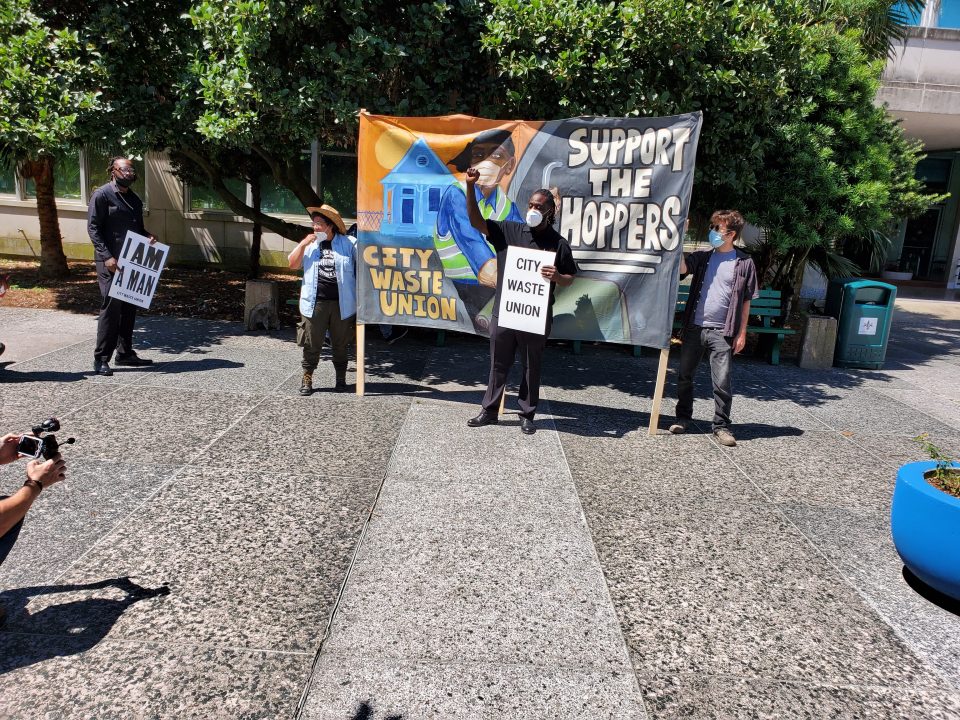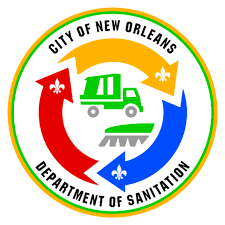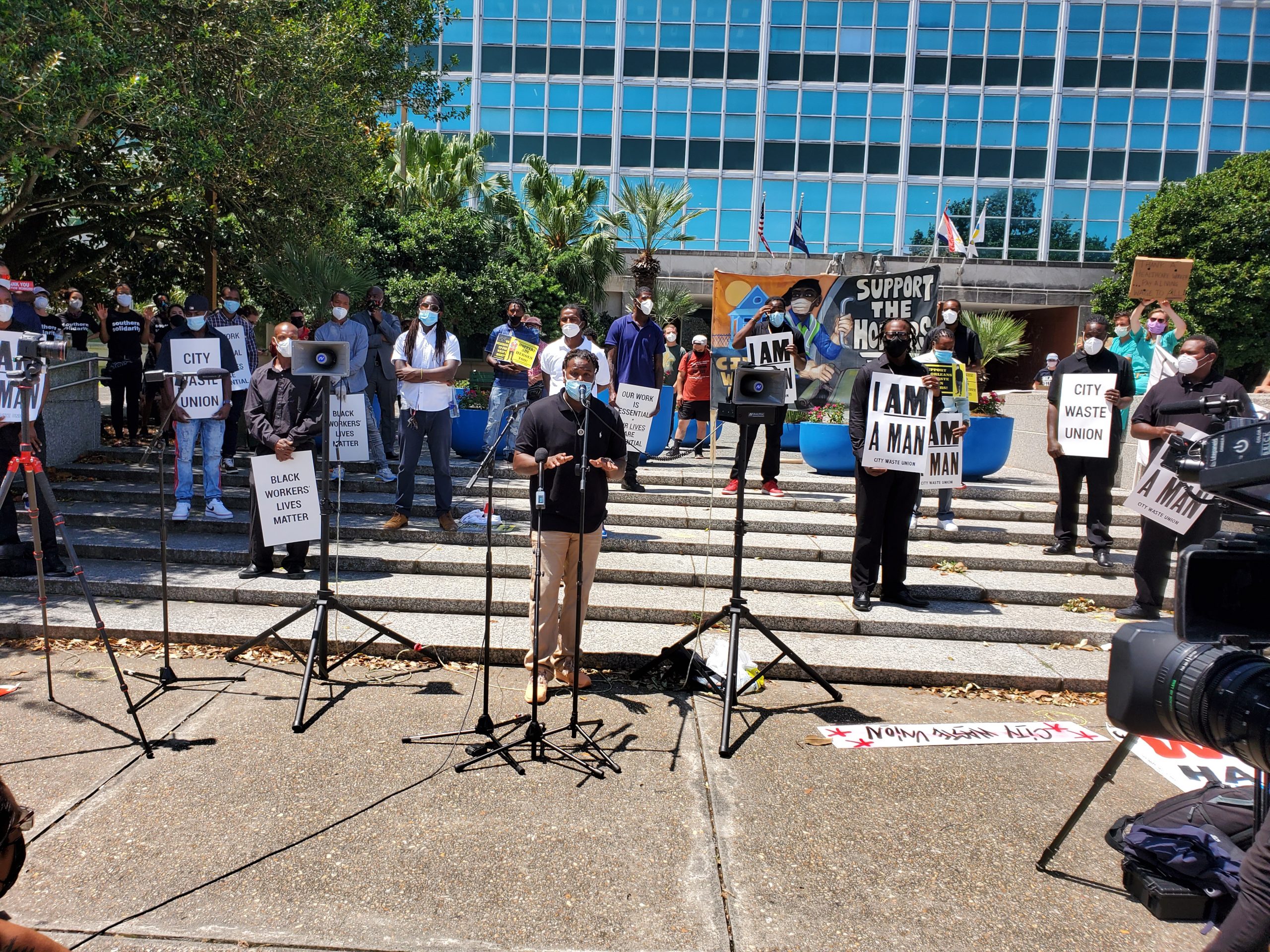ARE ESSENTIAL WORKERS BEING USED AS CHARMS IN A MONOPOLY GAME?
by CC Campbell Rock
When the Coronavirus came to America, news reporters lauded doctors, nurses, and EMTs for the essential workers they are, but, as the coronavirus death count continues to rise, it’s clear that grocery store employees, delivery drivers, police, fireman, postal workers, nursing home aides, janitors, meat packing plant workers, and sanitation workers are also essential workers.
At last count, 68 grocery workers have died from the novel coronavirus. Almost 12,000 meatpacking and food plant workers have reportedly contracted COVID-19; 48 have died, and 28,100 residents and workers have died from the coronavirus at nursing homes and other long-term care facilities, according to a New York Times database.
Providing adequate PPE and health benefits for these workers is essential to the overall public health of the nation. Without them on the front lines, the economy would tank, public health would become an even bigger catastrophe, and the odds of stopping the spread of this deadly pandemic would be horribly diminished.
And what we can’t do is to believe that the coronavirus is going to disappear and reappear. COVID-19 isn’t going anywhere soon. We must learn to live with it and that starts with stopping the spread among frontline workers, who may be asymptomatic and bringing the virus home.
On May Day essential workers walked off their jobs, nationwide, to demand safer working conditions and hazard pay. “Rolling job actions have popped up across the limping economy, including by Pittsburgh sanitation workers who walked off their jobs and fast-food employees in California who left restaurants to perform socially distant protests in their car,” according to an ABC news report. Picket lines went up in New York, Washington, Los Angeles, and other cities.
In New Orleans, several sanitation workers (hoppers) walked out of the Metro Services Company work yard on May 5, to protest a lack of adequate PPE and to demand $15 per hour and $150 per week in hazard pay, health insurance, and sick leave benefits.

Although brothers Jimmie and Glen Woods, the owners of Metro, the city’s first African-American owned waste disposal contractor, hired a staffing company, PeopleReady, to recruit, hire, and manage the hoppers’ payroll, the Woods’ decided it was in everyone’s best interest to meet directly with the hoppers to find a resolution.
A Metro spokesperson said the hoppers turned down the invitation to meet with Councilperson-at-Large Jason Williams, who agreed to mediate the dispute between the owners and the hoppers, because they people helping them form a new union, the City Waste Union, prohibited them from meeting with officials and Williams, while the unionization process is ongoing.

There’s no doubt that unionizing is a savvy move for the hoppers. But sources, who asked to remain anonymous, have pointed out what may be a nefarious move by IV Waste, a Metro competitor, whose owners, Sidney Torres, IV and his father, Sidney Torres, III, are allegedly bankrolling the white operatives who are representing the hoppers.
If the allegations are true, then what we have here are black workers pitted against a black-owned firm by whites, who want to snatch the city contract from the black-owned firm in a city that is 60 percent black. If true, the striking hoppers are at the epicenter of a conspiracy to overthrow a 38-year-old black owned business. IV Waste has been in business since 2016 and contracts with Kenner and St. Bernard Parish. Is IV Waste playing monopoly and using the hoppers as the charms?
That the hoppers want to unionize is a good thing. Their lives are on the line. If it weren’t for sanitation workers, there would be a public health crisis here that would make the coronavirus look like a picnic outing. But while they’re striking and putting together their own union, Metro must find workers to fill their positions.

In the interim, there has been talk about raising the sanitation fee by $1 per household to raise the capital needed to meet the hoppers’ demands and the possibility of the city increasing Metro’s contract amount. Reverend Gregory Manning, the co-coordinator of Justice & Beyond, a civil rights and social justice coalition, crunched the numbers and determined that if Metro eliminated PeopleReady, they could meet the hoppers’ demands and still have a $3 million profit margin.
Surely, all low-wage essential workers deserve a living wage, hazard pay, health insurance, sick leave, and fresh PPE on the daily. They are, after all, our front line public health protectors. But would it make more sense, for expediency sake, the public’s health, and their own financial well-being, for the hoppers to come to the table and find common ground, first?

